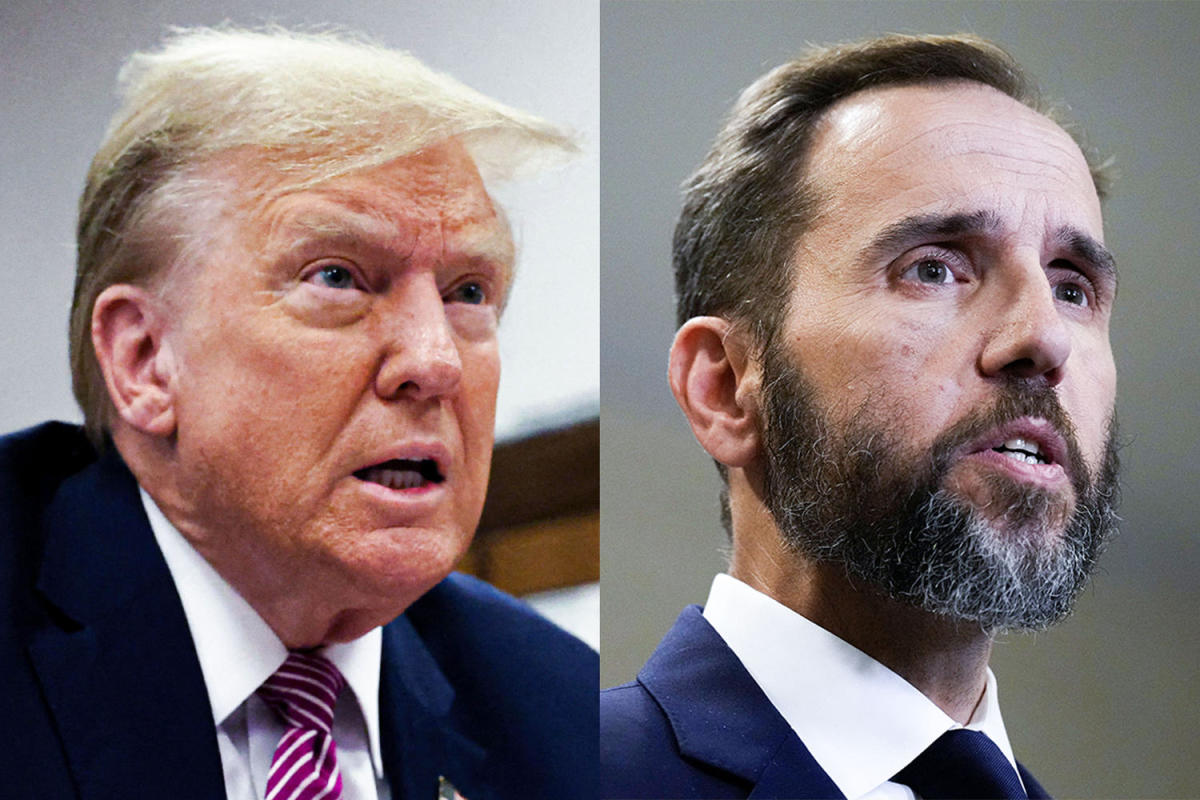WASHINGTON — Tackling an unprecedented and politically fraught issue, the Supreme Court on Thursday considers former President Donald Trump’s assertion of total immunity from criminal charges over his attempt to overturn the 2020 election results.
The court will take on the novel legal question of whether a former president can be prosecuted for what Trump’s attorneys say were “official acts” taken in office, though much of the focus remains on whether the justices will rule quickly so a trial could take place before the November election.
With most legal experts questioning Trump’s broad argument that the entire election interference indictment should be dismissed based on immunity, the court’s eventual ruling on the extent to which official acts are protected and how quickly it rules will be of equal importance.
The case puts considerable scrutiny on the court, which has a 6-3 conservative majority that includes three justices Trump appointed. The court already handed Trump an election-year boost when it ruled last month that Colorado could not kick him off the ballot.
The justices have also come under criticism for their delay in taking up Trump’s appeal, which some view in itself as a victory for him.
The Supreme Court announced Feb. 28 that it would hear the case, saying it would examine “whether and if so to what extent does a former president enjoy presidential immunity from criminal prosecution for conduct alleged to involve official acts during his tenure in office.” The decision immediately put the prospect of a pre-election trial in jeopardy.
A federal appeals court had ruled Feb. 6 that Trump was not immune from prosecution, writing that “former President Trump has become citizen Trump, with all of the defenses of any other criminal defendant,” and that while executive privilege may have protected him during his presidency, it no longer protected him against prosecution.
“It would be a striking paradox if the President, who alone is vested with the constitutional duty to ‘take Care that the Laws be faithfully executed,’ were the sole officer capable of defying those laws with impunity,” the federal appeals court ruled.
Under the original schedule laid out by U.S. District Judge Tanya Chutkan, Trump’s trial had been set to begin March 4, and the jury might have even reached a verdict by this point. Instead, the first of the four criminal cases against Trump to go to trial was the prosecution brought by Manhattan District Attorney Alvin Bragg in New York, where Trump was indicted on 34 counts of falsifying business records tied to a hush money payment in the lead-up to the 2016 election. He has pleaded not guilty to all charges.
The federal indictment returned by a grand jury in Washington, D.C., in August consisted of four counts: conspiracy to defraud the United States, conspiracy to obstruct an official proceeding, obstruction of and attempt to obstruct an official proceeding, and conspiracy against rights. The Supreme Court has already heard arguments in another Jan. 6 case that could affect two of the charges against Trump involving obstruction of an official proceeding.
Trump, according to the indictment, conspired to “overturn the legitimate results of the 2020 presidential election by using knowingly false claims of election fraud to obstruct the government function by which those results are collected, counted and certified.”
The indictment focuses on Trump’s involvement in a scheme to submit fake election certificates to Congress in the hope that they would nullify President Joe Biden’s victory. The chain of events culminated in the riot at the U.S. Capitol on Jan. 6, 2021.
Federal prosecutors led by special counsel Jack Smith say Trump’s actions constituted a series of crimes. Trump says he was merely expressing his concerns, which were not based on any evidence, that the election was plagued with fraud. He has pleaded not guilty to the federal charges.
While numerous Jan. 6 defendants have acknowledged that they were duped and manipulated or that they lacked the critical thinking skills to recognize the lies about the 2020 election for what they were, Trump and his lawyers have insisted that he sincerely believed the election was stolen.
Smith, meanwhile, has argued in court papers that Trump has no immunity and that the case should go to trial immediately — whether or not his conduct at the time involved official acts.
Trump’s lawyers cite, among other things, a 1982 Supreme Court ruling that said presidents are immune from civil suits when the alleged conduct falls within the “outer perimeter” of their official duties. That case has never been applied in the criminal context.
A key issue, as yet unresolved, is whether any of Trump’s actions mentioned in the indictment were official acts. Even if some conduct is off-limits, it would not necessarily mean that any charges are dismissed.
Smith’s team previously estimated it would need “no longer than four to six weeks” to present its case to a jury; potential jurors were told the trial “may last approximately three months after jury selection is completed.” At the time the case was put on hold in December, when the federal appeals court agreed to take it up, 88 days were left in the trial preparation schedule.
That timeline — nearly three more months of trial prep before jury selection begins — makes a verdict before Election Day unlikely, although Chutkan has indicated that the case would proceed like any other criminal prosecution and that Trump’s campaign schedule would not have an impact on the court.
The Supreme Court has various options in deciding the case, with both sides accepting that the ruling might not completely resolve the immunity issue. One scenario is that the justices could reject Trump’s broadest arguments while remanding the case back to Chutkan to resolve whether any of the conduct in question involved official acts. Such an outcome could further delay a trial.
This article was originally published on NBCNews.com
